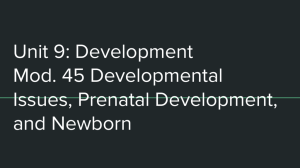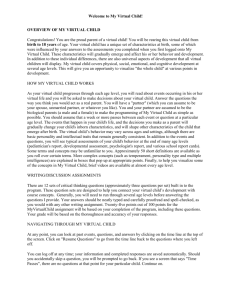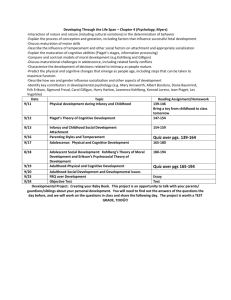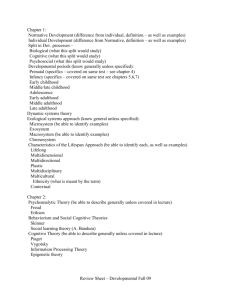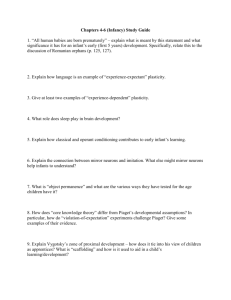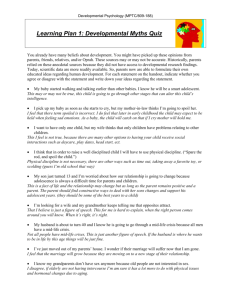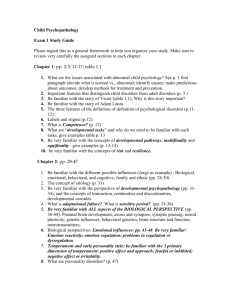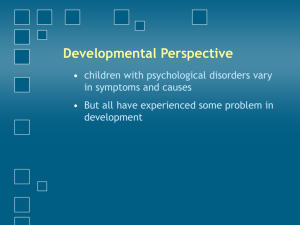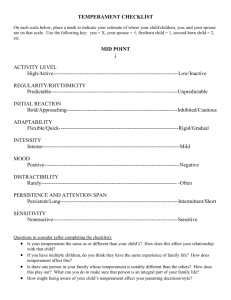Discussion Questions about My Virtual Child (8 months)
advertisement
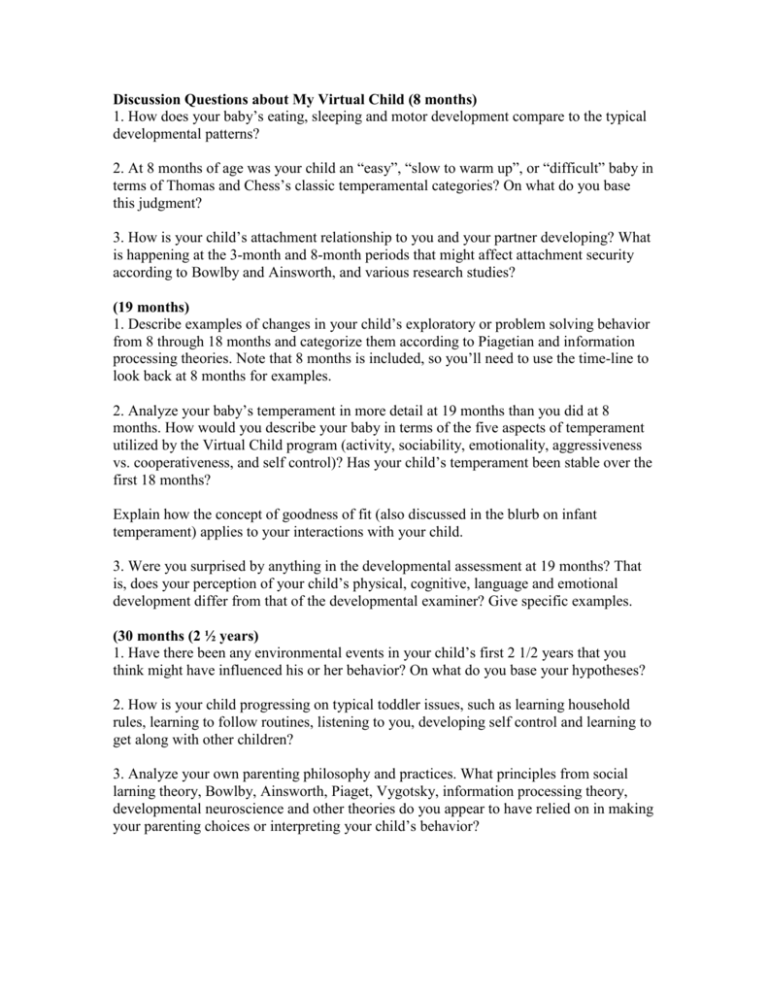
Discussion Questions about My Virtual Child (8 months) 1. How does your baby’s eating, sleeping and motor development compare to the typical developmental patterns? 2. At 8 months of age was your child an “easy”, “slow to warm up”, or “difficult” baby in terms of Thomas and Chess’s classic temperamental categories? On what do you base this judgment? 3. How is your child’s attachment relationship to you and your partner developing? What is happening at the 3-month and 8-month periods that might affect attachment security according to Bowlby and Ainsworth, and various research studies? (19 months) 1. Describe examples of changes in your child’s exploratory or problem solving behavior from 8 through 18 months and categorize them according to Piagetian and information processing theories. Note that 8 months is included, so you’ll need to use the time-line to look back at 8 months for examples. 2. Analyze your baby’s temperament in more detail at 19 months than you did at 8 months. How would you describe your baby in terms of the five aspects of temperament utilized by the Virtual Child program (activity, sociability, emotionality, aggressiveness vs. cooperativeness, and self control)? Has your child’s temperament been stable over the first 18 months? Explain how the concept of goodness of fit (also discussed in the blurb on infant temperament) applies to your interactions with your child. 3. Were you surprised by anything in the developmental assessment at 19 months? That is, does your perception of your child’s physical, cognitive, language and emotional development differ from that of the developmental examiner? Give specific examples. (30 months (2 ½ years) 1. Have there been any environmental events in your child’s first 2 1/2 years that you think might have influenced his or her behavior? On what do you base your hypotheses? 2. How is your child progressing on typical toddler issues, such as learning household rules, learning to follow routines, listening to you, developing self control and learning to get along with other children? 3. Analyze your own parenting philosophy and practices. What principles from social larning theory, Bowlby, Ainsworth, Piaget, Vygotsky, information processing theory, developmental neuroscience and other theories do you appear to have relied on in making your parenting choices or interpreting your child’s behavior?
